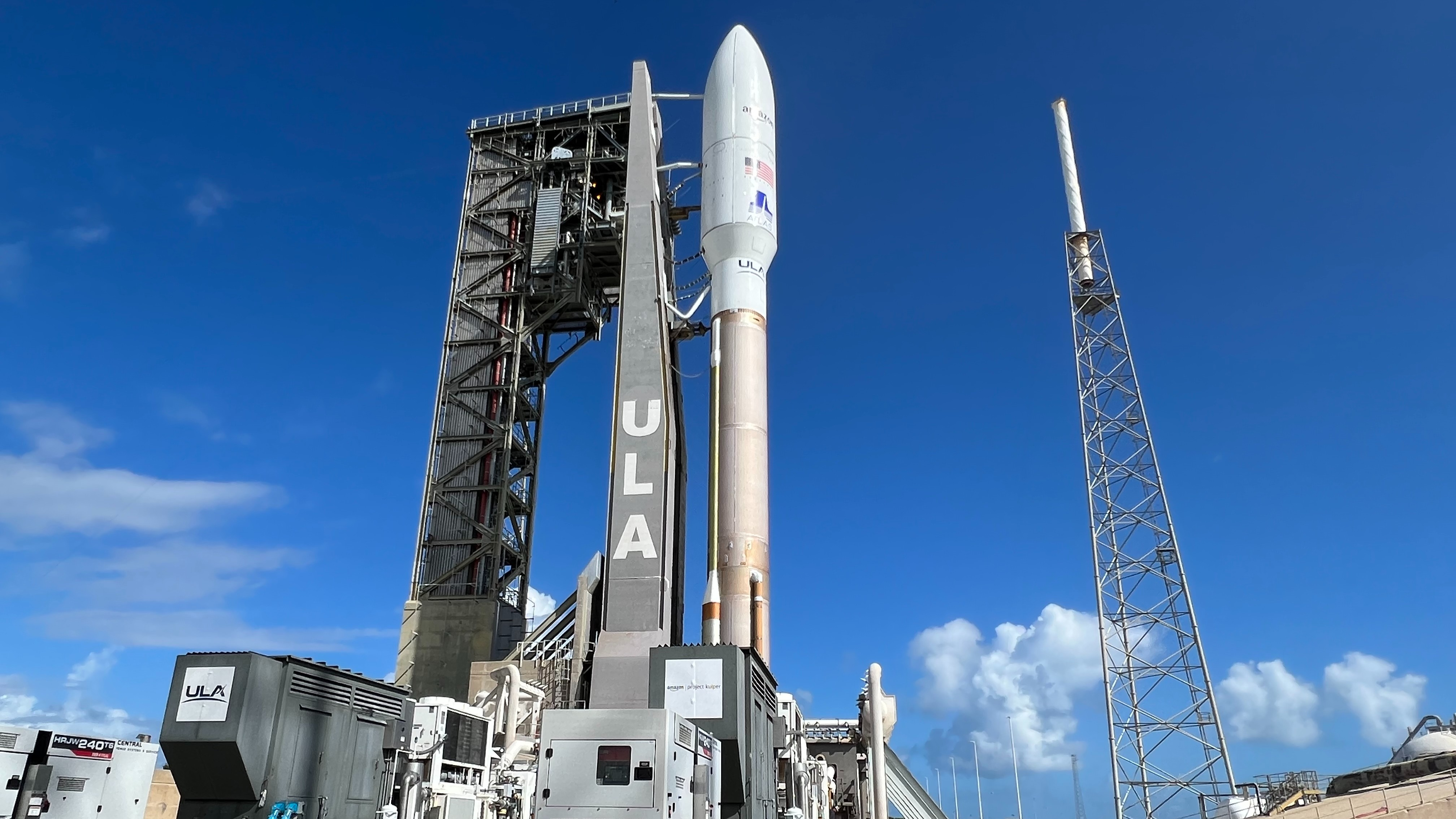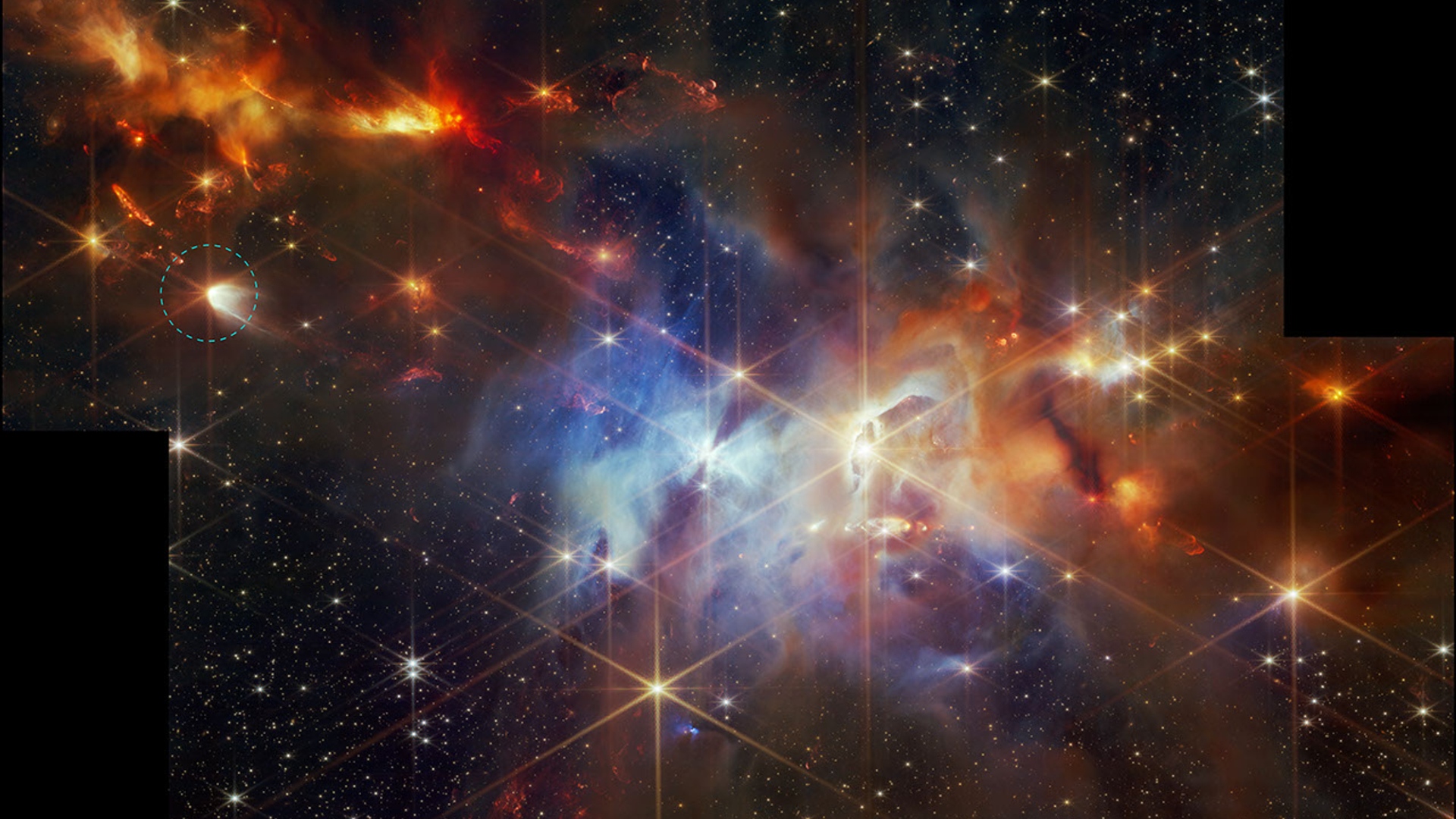Atlas V rocket launching Amazon's 1st internet satellites today: Watch it live
The first two prototype satellites for Amazon's Project Kuiper broadband constellation will lift off today (Oct. 6), and you can watch the action live.
A United Launch Alliance (ULA) Atlas V rocket carrying the two spacecraft is scheduled to lift off today from Florida's Cape Canaveral Space Force Station during a two-hour window that opens at 2 p.m. EDT (1800 GMT). There's a 70% chance the weather will cooperate, according to ULA.
You can watch it live here at Space.com courtesy of ULA, or directly via the company. Coverage will begin at 1:40 p.m. EDT (1740 GMT).
Related: Facts about ULA's workhorse Atlas V rocket
The two satellites going up today are prototypes for Project Kuiper, the broadband megaconstellation that Amazon plans to build in low Earth orbit (LEO).
If all goes according to plan, the duo, called Kuipersat-1 and Kuipersat-2, will be deployed into a 311-mile-high (500 kilometers) orbit about 18 minutes after liftoff, according to ULA.
The initial Project Kuiper constellation will consist of 3,236 satellites, according to an Amazon FAQ. Those spacecraft will ride to LEO atop a variety of rockets — launchers built by ULA, European outfit Arianespace and Blue Origin, the aerospace company founded (like Amazon) by Jeff Bezos.
Breaking space news, the latest updates on rocket launches, skywatching events and more!
Kuipersat-1 and Kuipersat-2 were originally supposed to fly on the debut mission of ULA's new Vulcan Centaur, but delays with that rocket led Amazon to shift to the workhorse Atlas V. Vulcan Centaur will still loft Project Kuiper satellites in the future, however.
Amazon's license with the U.S. Federal Communications Commission requires that the company be operating at least half of the Project Kuiper satellites in the initial constellation by July 2026. The constellation will begin providing service to some customers by late 2024, if all goes according to plan.
Project Kuiper will compete with another internet megaconstellation that's already operational in LEO — SpaceX's Starlink, which currently consists of nearly 5,000 functioning satellites. And Starlink is still growing; SpaceX has permission to deploy 12,000 of the satellites and has applied for approval for another 30,000 on top of that.

Michael Wall is a Senior Space Writer with Space.com and joined the team in 2010. He primarily covers exoplanets, spaceflight and military space, but has been known to dabble in the space art beat. His book about the search for alien life, "Out There," was published on Nov. 13, 2018. Before becoming a science writer, Michael worked as a herpetologist and wildlife biologist. He has a Ph.D. in evolutionary biology from the University of Sydney, Australia, a bachelor's degree from the University of Arizona, and a graduate certificate in science writing from the University of California, Santa Cruz. To find out what his latest project is, you can follow Michael on Twitter.

